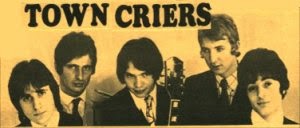Zoot were a pop-rock band formed in Adelaide, South Australia in 1965 as Down the Line. They changed their name to Zoot in 1967 and by 1968 had relocated to Melbourne. They had a top five hit on the Go-Set national singles chart with a heavy rock cover of The Beatles' ballad "Eleanor Rigby" released in 1970; but they disbanded in May 1971.
Mainstay bass guitarist, Beeb Birtles, was later a founder of Little River Band in 1975 and guitarist singer-songwriter, Rick Springfield, who moved to the United States in 1972, achieved international fame as a solo artist, songwriter and actor.
Although Zoot were a popular band during the late 1960's, critics labeled them as teenybopper or light bubblegum due primarily to the Think Pink – Think Zoot publicity campaign devised by their management. After relocating to Melbourne in mid-1968, Zoot signed with Columbia Records/EMI Australia and were managed by Wayne de Gruchy. They recorded their first single, "You'd Better Get Goin' Now", a Jackie Lomax cover with David Mackay producing.
Zoot's second single, "1 × 2 × 3 × 4" was released in December and charted on the Go-Set National Top 40 Singles Chart. By early 1970, band members had tired of the garish pink outfits and associated harassment and physical abuse, hence, to rid themselves of the bubblegum/teen idol image, they burnt their outfits on TV music show, Happening '70. Zoot then promoted their fifth single "Hey Pinky", released in April, with an advertisement in Go-Set which featured a nude picture of their bums. "Hey Pinky" was a hard charging guitar oriented song but it failed to chart.
They released a hard rock cover of The Beatles' song, "Eleanor Rigby" which became their most popular single when it peaked at No. 4 in March 1971. It remained in the Top 40 for twenty weeks and reached No. 12 on the Top Records for the Year of 1971. Their next single, "The Freak" / "Evil Child", another hard rock song, was released in April and peaked into the top 30.





























